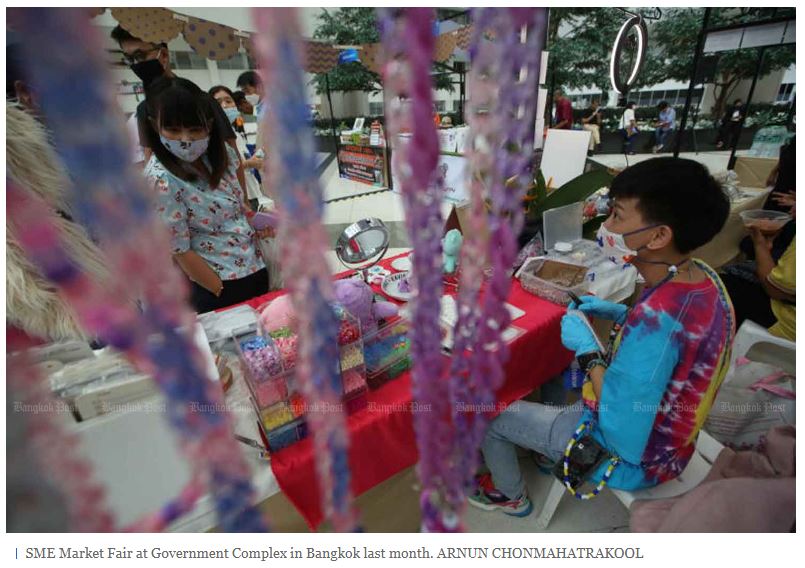Thailand: B2tn in SME loans risk turning sour
Loans worth 2 trillion baht owed by 1.1 million SMEs that entered the debt moratorium programme could turn into bad debts after the programme’s expiry at the end of September, says Thai Credit Guarantee Corporation (TCG).
Many loans owed by small and medium-sized enterprises could turn into non-performing loans (NPLs), while creditors may pursue litigation to seize debtors’ assets given the tepid economic recovery, said Surachai Kampalanonwat, director of the SMEs Financial Advisory Center at TCG.
SME loans classified as NPLs are currently valued at 490 billion baht, according to TCG.
The NPL ratio for SME loans could rise to 10-20%, equivalent to an additional 200-400 billion baht, when the debt moratorium ends on Sept 30, Mr Surachai said.
The amended Bankruptcy Act No.9 of 2016 sought to prevent asset seizure and allow creditors or debtors to propose business rehabilitation plans to the Central Bankruptcy Court, he said, noting that debtors will have a three-year grace period for debt repayment once their plans are approved by the court.
The act stipulates that the debt must not exceed 10 million baht and the cost of preparing a business rehabilitation plan must be less than 1,000 baht, with 10,000 baht placed as a guarantee.
Once the process is accepted by the Central Bankruptcy Court, it is the same procedure as the rehabilitation plan for large businesses, whereby creditors are prohibited from proceeding with asset seizure or utility cut.
Debts shouldered by SMEs must be loans for business.
In the case of credit card debt, it must be proved that the debt was used for business purposes.
There have been only two cases in which creditors and debtors underwent business rehabilitation in accordance with the amended Bankruptcy Act.
This could be because debtors have no prior knowledge on this, while creditors may lack confidence in a debtor’s business rehabilitation plan, Mr Surachai said.
TCG, as a loan guarantor for SMEs with 18 domestic financial institutions, could serve as a mediator in negotiating business rehabilitation plans between creditors and debtors, he said.
“This approach is likely to be the last option for SMEs in order to prevent asset seizure and business shutdown,” Mr Surachai said.
Source: https://www.bangkokpost.com/business/1986667/b2tn-in-sme-loans-risk-turning-sour


 English
English




